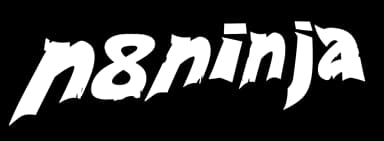Daily AI NEWS - July 7, 2024
YouTube, AI, and Patents
Keep up to date with the fast pace of the AI landscape.
Automated and generated content, pioneering AI Automation.
YouTube releases an AI-powered tool to remove copyrighted music. Cloudflare launches tools to block AI crawlers. Kioxia introduces new 3D QLC NAND devices. China leads in generative AI patents.
Trending AI Topics
AI-Powered Tools and Innovations
YouTube has released an AI-powered eraser tool to help creators easily remove copyrighted music from their videos without affecting other audio such as dialog or sound effects. This enhanced tool aims to assist creators in avoiding copyright strikes, providing a smooth workflow for content creation.
In another recent development, Cloudflare has launched free tools enabling website owners to block all AI crawlers. This initiative comes in response to Microsoft labeling public internet content as "freeware" for AI training. Cloudflare's tool provides a defense measure against unauthorized content scraping by AI bots.
AI in Hardware and Semiconductor Industry
Samsung said it expects a 1,452% profit increase for the second quarter, causing shares to climb 2.24% to a high of 86,500 Korean won ($62.73). CNBC reports Samsung issued guidance on Friday, saying operating profit for the April to June quarter is projected.
While much of the tech world remains fixated on the latest large language models powered by Nvidia GPUs, a quieter revolution is brewing in AI hardware. As the limitations and energy demands of traditional deep learning architectures become increasingly apparent, innovative companies like Innatera are pioneering new approaches.
This week, Kioxia introduced its new 3D QLC NAND devices aimed at high-performance, high-capacity drives that could redefine what we typically expect from QLC-based SSDs. The components are 1 Tb and 2 Tb 3D QLC NAND ICs with a 3600 MT/s interface speed.
Generative AI Trends
China has requested significantly more generative AI patents than any other country, the U.N. intellectual property agency (the World Intellectual Property Organization) is reporting. According to WIPO's first-ever report on GenAI patents, China submitted over half of the total applications globally, highlighting the nation's rapid development in AI technologies.
While much of the tech world remains fixated on the latest large language models powered by Nvidia GPUs, a quieter revolution is brewing in AI hardware. As the limitations and energy demands of traditional deep learning architectures become increasingly apparent, companies like Innatera are leading advances in alternative AI hardware solutions, highlighting a trend toward more efficient and specialized AI systems.
Despite the advancements in generative AI, there are growing concerns about the environmental impact. Tech companies are abandoning emissions pledges to chase AI market share, with large-scale deployment and training of AI models consuming substantial energy resources, raising alarms about the technology's sustainability.
Samsung's AI Advancements
Samsung is about to reveal a bunch of new AI features for its smartphones just weeks after Tim Cook revealed Apple Intelligence.
Security Concerns in AI Systems
Hackers accessed OpenAI's internal systems last year and stole messages about AI design, prompting security concerns.
A threat actor on BreachForums is selling an unverified npm vulnerability for account takeover, but npm has not officially confirmed the existence of this security concern.
Selected articles of the day
OpenAI's latest reputation problem: hackers
Hackers accessed OpenAI's internal systems last year and stole messages about AI design, prompting security concerns.
Read on Business Insider
Beyond GPUs: Innatera and the quiet uprising in AI hardware
While much of the tech world remains fixated on the latest large language models powered by Nvidia GPUs, a quieter revolution is brewing in AI hardware. As the limitations and energy demands of traditional deep learning architectures become increasingly appar…
Read on VentureBeat
This tiny autonomous sailboat is charting a new course for marine science
Amar Shar, the co-founder of British AI unicorn Wayve, has backed Oshen, a budding startup building miniature autonomous sailboats. The little robots could transform the way scientists monitor everything from ocean temperatures and waves to biodiversity. The …
Read on The Next WebFabric is an open-source framework for augmenting humans using AI
fabric is an open-source framework for augmenting humans using AI. It provides a modular framework for solving specific problems using a crowdsourced set of AI prompts that can be used anywhere. - ...
Read on Github.com
AI beats top racers at Gran Turismo – without cheating
An AI driver achieved faster lap times than the best humans in the video game Gran Turismo 7, and unlike previous versions, it only used information available to players
Read on New Scientist